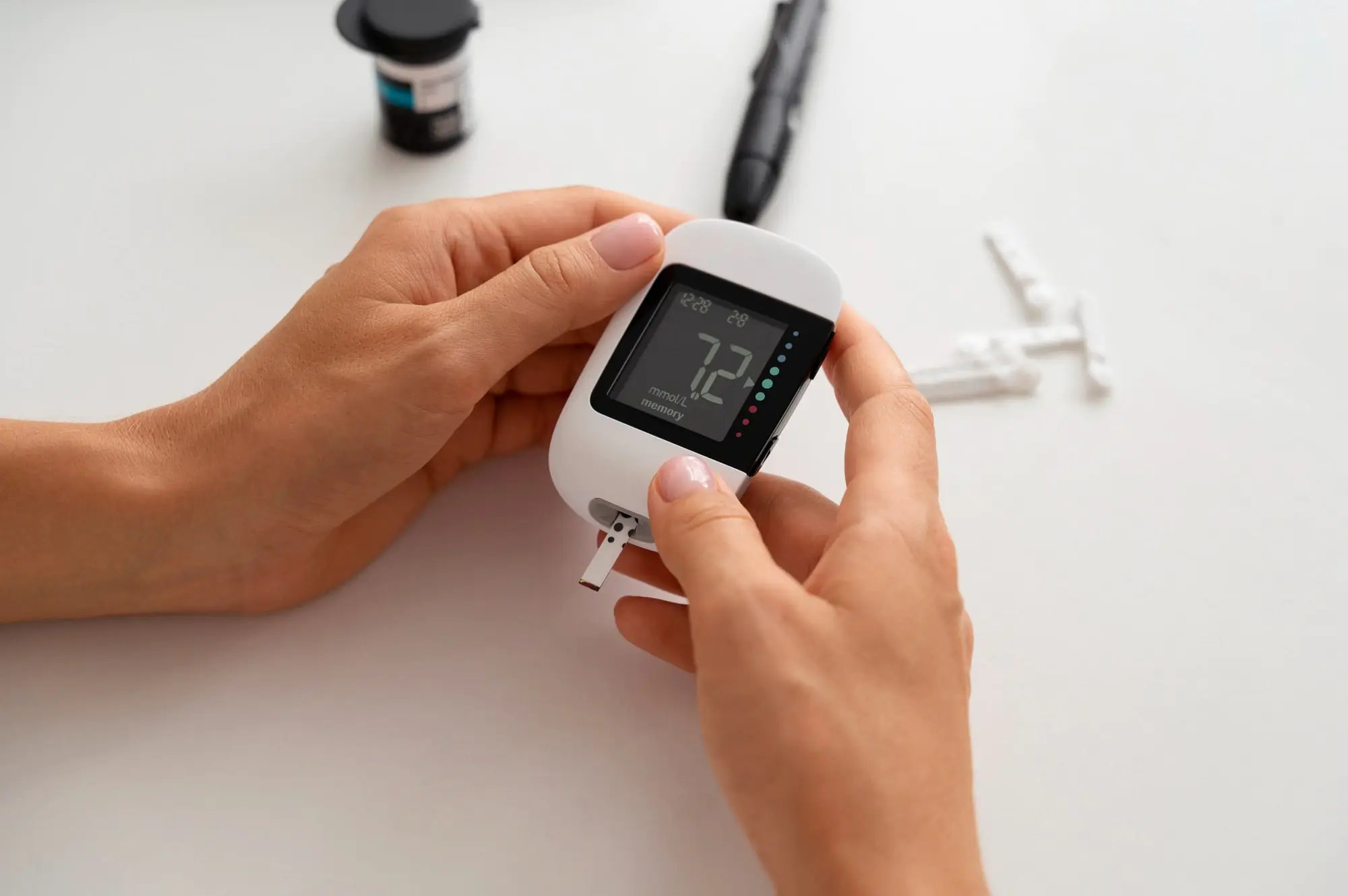
How Should Diabetic Patients Be Fed?
On the occasion of World Diabetes Day on November 14, we have prepared an informative article about nutritional guidance for a healthy life with diabetes. Diabetes is a disease that can affect not only blood sugar levels, but the health of the entire body. Proper nutrition is of great importance to maintain blood sugar balance and reduce the risk of complications. So,
Diabetes and the Importance of Nutrition
In the management of both Type 1 and Type 2 Diabetes, nutrition is one of the cornerstones of treatment. While a healthy diet helps balance blood sugar levels, it also contributes to preventing complications such as high cholesterol and heart disease. It is recommended that diabetics regularly opt for balanced and low glycemic index foods to feel better both physically and mentally. For these patients, healthy eating should become a lifestyle.
Why Should Diabetics Pay Attention to Their Diet?
Changes in the blood sugar levels of individuals with diabetes can lead to dangerous sudden low blood sugar such as hypoglycemia in the short term, organ damage caused by diseases such as nephropathy, diabetic foot, neuropathy in the long term, and different chronic diseases. A regular, balanced diet helps keep blood sugar in balance and can reduce both the short-term and long-term effects of diabetes. For this reason, it is of great importance for diabetic patients to establish a correct lifestyle and diet.
Choosing Suitable Food for Diabetic Patients
Carbohydrate Selection: Low Glycemic Index Foods
It is recommended that diabetic patients focus on low glycemic index (GI) foods in their carbohydrate choices. Low-GI foods do not cause sudden fluctuations in blood sugar. It raises and lowers blood sugar levels more slowly than high-GI foods. With this feature, it also helps the patient to feel full for a longer time. Foods such as whole grain products, bulgur, oats, lentils and vegetables provide a more balanced energy by mixing with blood sugar more slowly during the digestion process.
Protein Sources: Lean Meat, Fish, and Vegetable Proteins
Protein sources are also important in diabetes management. Preference should be given to lean meats (chicken, turkey), fish rich in omega-3 fatty acids (salmon, mackerel) and vegetable proteins (chickpeas, lentils, beans). The cooking methods of protein sources are also very important. Rather than unhealthy cooking methods such as frying and roasting, cooking methods such as sizing and boiling, which both minimize the loss of vitamins and minerals and prevent high fat intake, are recommended. Proteins increase the feeling of satiety by slowing down the rate at which carbohydrates mix with the blood.
Fat Consumption: Healthy Fats and Fats to Avoid
It is important for diabetics to turn to healthy fat sources. Healthy fats such as avocados, olive oil, hazelnuts, and walnuts balance blood sugar and support heart health. Avoiding trans fats and processed fats (margarine, convenience foods) provides protection from the negative effects of these fats, which increase inflammation and insulin resistance.
Foods to Avoid for Diabetics
Diabetic patients’ avoidance of certain foods helps them manage their blood sugar balance and reduce the risk of diabetes-related short- and long-term complications. Here are the major food groups to look out for:
Refined Sugar and Sugary Products
Refined sugar quickly raises blood sugar levels. It is important to avoid sugary drinks, sweets, and foods that contain white sugar. At the same time, foods containing simple sugars such as honey, molasses and jam may be inconvenient for diabetics. It may be recommended for blood sugar balance for patients to meet their sweet needs from alternatives such as desserts prepared with sweeteners and portion-controlled fruits.
High Glycemic Index Foods
High-GI foods such as white bread, white rice, carrots and potatoes can cause spikes in blood sugar. Instead of such foods, whole grains and vegetables should be preferred.
Saturated Fat and Processed Foods
Processed foods and foods containing saturated fat (processed meat products such as sausages and sausages) can increase the risk of cardiovascular diseases. Avoiding them is beneficial for heart health.

Can Diabetics Do Sports/Exercise?
Yes, for diabetics, sports and regular exercise are an important part of a healthy lifestyle. Research shows that exercise improves blood sugar control by increasing insulin sensitivity. Regular physical activity also plays a huge role in regulating blood sugar levels while maintaining heart health. The types of exercise recommended for individuals with diabetes include walking, swimming, cycling, yoga, and light weight training.
Effects of Exercise on Diabetes
During exercise, muscles use glucose for energy, which helps lower blood sugar and keep it more balanced. In addition, regular physical activity allows the body to respond better to insulin. The American Diabetes Association recommends that diabetics get at least 150 minutes of moderate-intensity aerobic exercise per week and add strength training to at least two days a week.
Exercise Recommendations for Individuals with Diabetes
Blood Glucose Monitoring: It is important to monitor blood glucose levels before and after starting exercise. This is an element to be considered, especially for diabetics who use insulin. Carry a Snack with You: Having a piece of fruit or glucose tablets on hand for sudden drops in blood sugar helps manage hypoglycemia that can occur during exercise. Choosing Compatible Shoes: Foot health is important for diabetics, so choosing proper sneakers prevents possible injuries. Regular exercise contributes not only to blood sugar control, but also to weight management, improved mental health, and improved overall quality of life. However, it is important to get a doctor’s approval before starting any exercise program.
Frequently Asked Questions About Nutrition for Diabetics
Can diabetics eat bread?
He can and should eat. Foods containing quality carbohydrates support a person’s fiber and fiber intake and protect the person from hypoglycemia. In other words, diabetics can consume bread, but they should prefer options of low glycemic index and quality carbohydrate sources such as wheat or whole grain bread. It is important to avoid processed products such as white bread.
How should fruit consumption be for diabetics?
Diabetic patients should maintain portion control in fruit consumption. Again, preference should be given to fruits with Low GI (apples, pears, strawberries). Consumption of fruits with high fructose content such as mangoes and bananas should be limited.
What drinks are best suited for diabetics?
The best options are water, unsweetened herbal teas, and low-calorie drinks. Sugary and alcoholic beverages (carbonated drinks, fruit juice) should be avoided.




